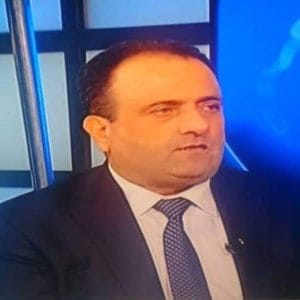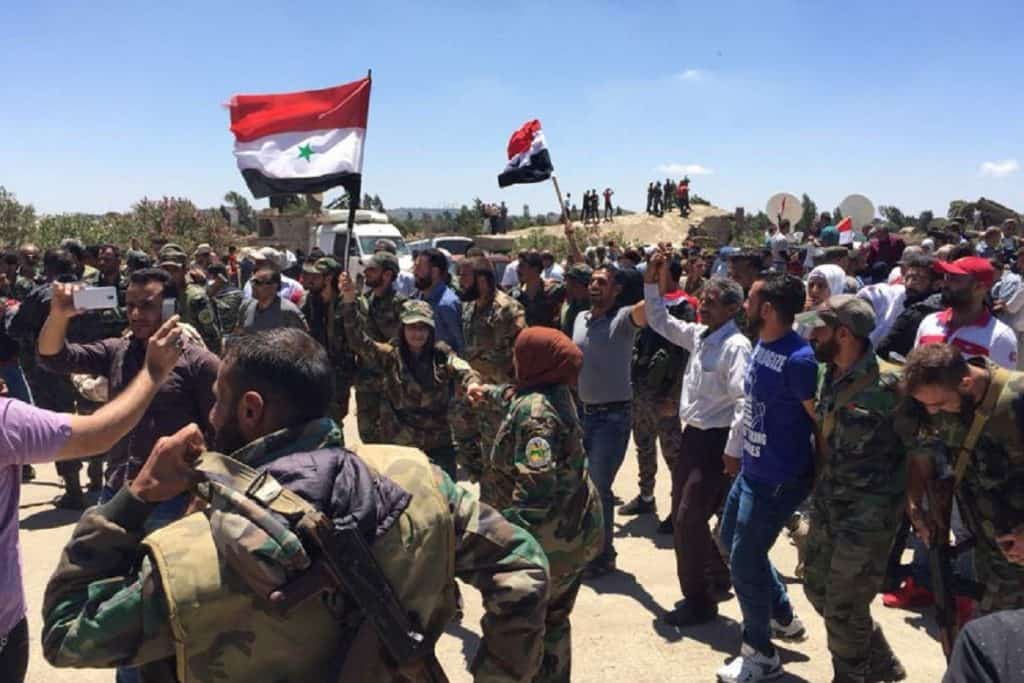The military-political conflict in Syria, along with the humanitarian crisis, continues to worry the international community because of its protracted and seemingly irreversible nature. Armed factions continue to act as a significant decision-making institution that is vital to the Syrian state. In turn, Russia, Turkey and Iran apparently do not quite clearly understand what set of measures must be taken to ensure peace.

About this, exclusively for World Geostrategic Insights, Denis Korkodinov spoke with the former Press Director of the Syrian Information Ministry, Dr. M. Abdullah Ahmed (Damascus).
1. Mr. Ahmad, recently, an official meeting took place in Damascus between Syrian President Bashar Al-Assad and Omani’s foreign minister Yusuf bin Alawi bin Abdullah. As a result of the meeting, the parties exchanged expressions of friendship and high appreciation to each other. Does this fact testify to the rise of Syrian-Omani relations? Are any breakthrough actions of the Sultanate on the territory of Syria expected in connection with the agreements reached? I mean the possible participation of Oman in the Syrian theater of operations or the provision of financial support to the official forces of official Damascus?
– It is clear that the Syrian crisis reflects the severity of the regional and international conflict between the major powers. And, despite the progress made by the Syrian state in maintaining order in most of the Syrian regions, the province of Idlib is still under the control of Hayat Tahrir ash-Sham and other terrorists. In addition, the presence of the US occupation forces in eastern Syria is considered a serious problem preventing the settlement of the Syrian crisis.
In this regard, the war in Syria continues due to US attempts to prevent a peaceful settlement. In this context, the visit of the Omani Minister Yusuf bin Alawi to Syria and his meeting with President Bashar Assad can be understood as an attempt to create a political breakthrough. Oman, as we know, does not act on its own initiative. Perhaps Minister Ben Alawi conveyed to the Syrian colleagues proposals from the Gulf countries or the United States.
Oman has always been a mediator in regional conflicts, which was clear from its role in between Tehran and the Arab world. However, it is unlikely that Damascus will accept the conditions of any conditions that are contrary to the sovereignty of Syria. Therefore, one cannot rely on such a visit very strongly, despite its importance at the level of Arab-Syrian relations. In the end, a solution to the Syrian crisis requires a Russian-American consensus that this now seems impossible.
2. The military-political situation in the Syrian province of Idlib is at a critically dangerous level and risks spreading to other areas of Syria that were recently liberated by the armed forces of Bashar al-Assad. Such a negative picture could have arisen as a result of the inability of Russia and Turkey to agree among themselves on ensuring the de-escalation regime in Idlib. Meanwhile, the consequences of inconsistent actions in the region really threaten a new escalation of the Syrian conflict. What complex of measures, including of a military nature, do you think should be taken in order to solve the Idlib problem? Should Russia, Turkey and Iran continue negotiations on the future development of Syria exclusively in a trilateral format, or should a new participant appear in the negotiation process who could assume the role of key arbiter?
– Restoring order in Idlib and eliminating the epicenter of terrorists is the biggest challenge facing the Syrian state, despite understanding the agreement on de-escalation and its positive role in various regions in previous years, where such arrangements led to the release of these areas and the restoration of security and stability. In the Russian-Turkish agreement on Idlib, the parties did not fulfill their obligations and sought to gain time.
Future meetings between Iran, Russia and Turkey can be useful if countries can come to a compromise, but now this is unlikely. Therefore, while a military solution is the only option for the liberation of Idlab and the entire north-west of Syria.
3. Last week, US special envoy to Syria, James Jeffrey turned to Germany with a demand to provide ground troops for a coalition against the “Islamic state.” And, despite the fact that Germany officially rejected Washington’s demand, the message of the American diplomat does not lose its relevance and indicates the intention of the White House administration to organize another military campaign with the participation of ground forces in Syria. What do you think about it? The leadership of official Damascus, for objective reasons, will resist any American initiatives, but, on the other hand, Washington, it would seem, is acting under the specious pretext of fighting the Islamic State. Does this mean that under similar circumstances, the administration of Bashar al-Assad will give a green light to the effect of additional ground forces on its territory?
– It is surprising that Washington is trying to launch a new military campaign against ISIS in Syria, despite the fact that quite recently the White House administration officially announced the complete defeat of jihadists. For this reason, the US attempts can be understood as part of the desire to reproduce the crisis and again blow up the region. However, these attempts will not succeed because of changing circumstances and conditions.
The Syrian people want to get rid of the remaining terrorists and liberate the country in order to begin the recovery process. Also, the Syrian army gained strength and experience during the war years and is able to liberate the rest of the land, so the time will soon come to force the US to withdraw from Syria. Anyway, any illegal military participation of foreign countries in Syria is considered an occupation, and from the position of the Syrian government it is clear that any illegal armed groups will be considered as hostile forces.
In the coming months, serious military and political events will occur in Syria. We can witness the release of Idlib before the end of the year, which will inevitably lead to strategic changes in the region and may be a prelude to a political decision that will satisfy the Syrians.







